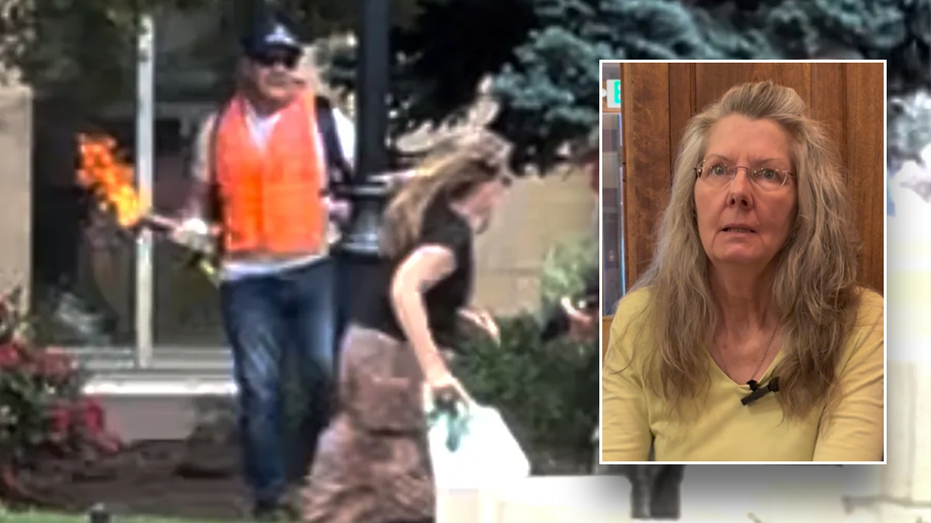Boulder GOP Chair Criticizes 'Tolerant' Policies Following Molotov Attack Amid Rising Security Concerns
Boulder County GOP chair criticizes local tolerance policies amid incident involving overstayed visa and attack on pro-Israel supporters.

Boulder, Colorado is reeling after a shocking terror attack left twelve people injured and sparked renewed debate over immigration policies in the state. The incident occurred when Mohamed Sabry Soliman, a 45-year-old Egyptian national who had overstayed his visa, allegedly threw Molotov cocktails into a crowd of peaceful pro-Israel demonstrators gathered near the Boulder County courthouse. The victims were attending an event organized around advocacy for Israeli hostages, coinciding with the Jewish holiday of Shavuot.
Witnesses described the scene as "horrific," with several attendees suffering burn injuries as flames erupted amid the crowd. According to law enforcement, Soliman was heard shouting "Free Palestine" during the attack. Officials stated that eight people sustained burns, while a total of twelve individuals required medical attention in the aftermath. Authorities say Soliman later admitted to planning the assault and reportedly expressed remorse only for not causing more damage, telling investigators he would "do it again."
According to U.S. immigration authorities, Soliman entered the United States through Los Angeles International Airport in August 2022 on a non-immigrant visa and was required to return home by February 2023. Instead, he remained in the country illegally and obtained work authorization shortly after filing an application with U.S. Citizenship and Immigration Services. Records indicate his work authorization was valid until March 2024, during which time, authorities allege, Soliman spent nearly a year preparing for the attack.
This incident has intensified scrutiny of local and state policies that provide support and resources for undocumented immigrants. Boulder County Republicans Chair Peg Cage criticized what she characterized as an environment of excessive tolerance at the expense of public safety. "Why aren't we following our laws?" Cage questioned, expressing frustration over what she sees as local programs that instruct individuals how to avoid immigration enforcement and remain in the community despite expired legal status.
Cage argued that the attack reflects "contradictions" between current county practices and stricter immigration directives previously supported at the federal level. She emphasized concerns that sanctuary policies embolden individuals who have violated immigration law, saying, "They're too tolerant, and they think it's a good thing." Cage highlighted resources available on the Boulder County website and public events where information about evading Immigration and Customs Enforcement (ICE) is disseminated, calling for immediate policy reevaluation.
Soliman now faces a litany of charges, including multiple counts of attempted first-degree murder, first-degree assault, possession of incendiary devices, and over a dozen counts related to the attempted use of such devices. Furthermore, he has been charged at the federal level for allegedly committing a hate crime against individuals based on actual or perceived religion, race, or national origin.
The attack has left the Boulder community shaken and reignited heated debates about immigration law, public safety, and the balance between inclusivity and enforcement. Local officials have yet to make formal statements addressing the concerns raised, leaving many residents demanding answers and greater accountability in the wake of the violence.




